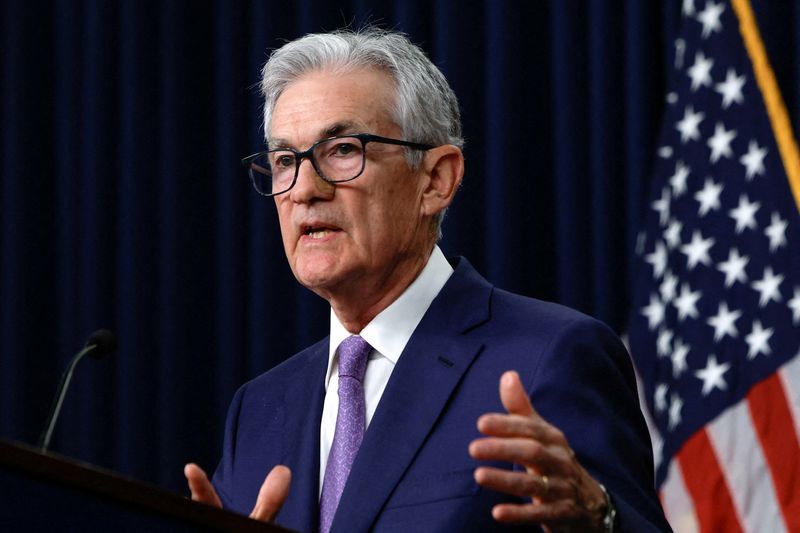Select Language

By Howard Schneider and Ann Saphir
WASHINGTON (Reuters) -The U.S. is "no longer an overheated economy" with a job market that has cooled from its pandemic-era extremes and in many ways is back where it was before the health crisis, Fed Chair Jerome Powell said in remarks to Congress that suggested the case for interest rate cuts is becoming stronger.
"We are well aware that we now face two-sided risks," and can no longer focus solely on inflation, Powell told the Senate Banking Committee on Tuesday. "The labor market appears to be fully back in balance."
Powell told lawmakers that he did not want "to be sending any signals about the timing of any future actions" on interest rates, a stance consistent with the chair's recent efforts to focus attention more on the evolution of economic data - and the possible choices the Fed might make in response - and less on firm guidance about what might happen on what timetable.
Still, with a Nov. 5 presidential election on the horizon and just two scheduled Fed meetings before it, Powell was quizzed by Democrats about the risks to the job market of not cutting rates soon, and by Republicans about the pain to households of inflation that remains above the central bank's 2% target.
"Any move to lower rates before Nov. 5 would be a bad perception," Senator Kevin Cramer, Republican of North Dakota, said to Powell, said in remarks that went on to pledge support for central bank independence.

